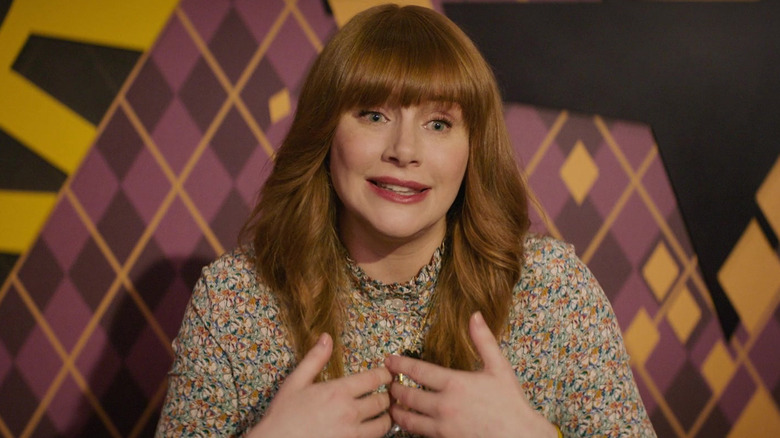Among the myriad questions actors routinely face from friends, family, and even strangers online, one stands out as particularly persistent: Can they tell, while filming, whether a movie will turn out to be a triumph or a disaster? Most stars steer clear of this topic like the plague, wary of jeopardizing the delicate creative partnerships that sustain their careers in the close-knit world of Hollywood. If they do address it, you're likely to hear a generic response about how everyone on set could feel the "magic" happening. It's exceedingly rare for prominent figures to openly admit that, yes, some high-profile flops seemed doomed from the start—even while the cameras were still rolling. But Bryce Dallas Howard isn't your typical star.
This actor-turned-director, known for navigating both the peaks and valleys of her profession, has experienced the highs of starring in the financially successful (though critically divisive) "Jurassic World" franchise, alongside the inevitable missteps that accompany any career in entertainment. Such swings are par for the course, of course, yet many creatives struggle to reconcile their aspirations with reality. Not Howard. In a refreshingly candid profile published by The Independent, she demonstrates an enviable equanimity.
After the underwhelming theatrical run of last year’s spy thriller "Argylle," it would be understandable if Howard wished to move past that experience ahead of her role in the upcoming Prime Video film "Deep Cover." Yet, disappointments like these affect everyone—especially someone who grew up learning the craft from her legendary father, director Ron Howard. Surprisingly, Howard reveals during the interview that she saw certain failures coming from miles away and didn’t lose sleep over them. Without naming specific projects (such as "Argylle" or M. Night Shyamalan’s infamous "The Lady in the Water"), she asserts:
"You can always see it coming while you're making it. I've never been shocked when something doesn't work."
While such honesty might seem unorthodox—or even unsportsmanlike—it underscores a deeper truth about the nature of filmmaking. Beyond its refreshing candor, Howard makes a profound distinction between the responsibilities of acting versus directing. Drawing from her dual expertise as both performer and filmmaker, particularly through her acclaimed directing work on shows like "Star Wars: Skeleton Crew" and "The Mandalorian," she clarifies:
"But I'm just an actor—you're there to serve a director's vision. If a movie doesn't turn out the way you envisioned, you can barely feel disappointed because it's not yours. You're not the person building the thing."
In an industry brimming with oversized egos, Howard’s perspective stands out as remarkably grounded—and all too rare. As long as she shows up prepared, commits fully to her craft, and fulfills her duties as a performer, the outcome remains beyond her control. This mindset, which has clearly served her well, traces its roots back to another cinematic legend. Later in the same interview, Howard recounts how her father, Ron Howard, grappled with similar challenges following the lukewarm reception of his 1992 epic "Far and Away," starring Tom Cruise and Nicole Kidman. According to her, Clint Eastwood offered him invaluable advice:
"He said, 'Ronnie—a career is like a season of television. You've got 24 episodes, some of the episodes are going to be bad, some are going to be serviceable, maybe a little forgettable, and maybe five of those episodes are going to be really strong and last.'"
We may have missed out on what surely would have been an unforgettable Eastwood impression, but the rest of the profile at The Independent is well worth reading in full. Meanwhile, fans eagerly await Howard's next project, "Deep Cover," set to premiere on Prime Video on June 12, 2025.




